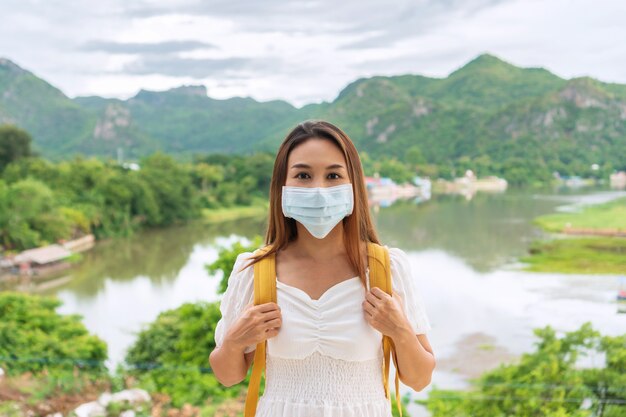Traveling is an exciting way to explore new places, experience different cultures, and create lasting memories. However, it can also expose you to health and safety risks, especially when visiting unfamiliar areas. Whether you’re traveling for business, pleasure, or adventure, staying healthy and safe while on the move is crucial. In this article, we will explore practical tips to help you maintain your well-being and avoid common travel-related health and safety issues.
1. Prioritize Travel Health Insurance
Before embarking on any trip, one of the most important steps you can take is to secure comprehensive travel health insurance. Health insurance coverage varies by country, and medical emergencies abroad can be expensive. Travel insurance can cover hospital stays, medical treatments, and even emergency medical evacuations, ensuring that you are protected in case of an illness or injury.
Be sure to read the terms and conditions carefully, as some plans may have exclusions or limits on coverage in specific regions. It’s essential to find a plan that suits your destination and health needs.
2. Stay Hydrated and Eat Wisely
Traveling often involves long flights, changes in diet, and exposure to different climates, all of which can affect your health. Staying hydrated is crucial to prevent fatigue, headaches, and dehydration. Drink plenty of water during your travels and avoid excessive consumption of alcohol or caffeinated beverages, which can dehydrate you.
When it comes to food, be cautious about eating street food or food from unknown sources. Stick to well-cooked meals and avoid eating raw fruits and vegetables that may not have been properly washed. If you’re unsure about the hygiene standards, it’s better to err on the side of caution.
3. Protect Yourself from Infections and Illnesses

When traveling, especially to regions with different health risks, it’s important to take preventive measures against infections and illnesses. For example, malaria and dengue fever are common in some tropical areas, while travelers to certain countries may be at risk for diseases like typhoid or yellow fever. Make sure to get any recommended vaccinations before your trip, and carry medications such as anti-malarial drugs if necessary.
In addition, practice good hygiene by washing your hands frequently, carrying hand sanitizer, and avoiding touching your face. Wearing insect repellent in areas where mosquitoes are prevalent is also essential for preventing mosquito-borne diseases.
4. Take Care of Your Mental Health
While physical health is a primary concern, your mental well-being is just as important during your travels. Travel can be stressful, especially if you’re adjusting to new time zones, navigating unfamiliar places, or dealing with unexpected challenges. It’s essential to manage stress, get enough sleep, and take breaks when needed. Practice relaxation techniques like deep breathing, meditation, or yoga to help maintain a calm and positive mindset.
If you’re traveling for an extended period or dealing with travel fatigue, make sure to schedule downtime to rest and recharge. Keep in touch with loved ones and stay connected to familiar routines to help reduce feelings of isolation.
5. Be Aware of Your Surroundings and Stay Safe
Personal safety is a key concern when traveling, particularly in unfamiliar destinations. Always be aware of your surroundings and take precautions to protect yourself from theft, scams, or other potential dangers. Keep your valuables, such as passports, wallets, and phones, in secure places like hotel safes or money belts.
Use trusted transportation services, avoid walking alone at night, and familiarize yourself with emergency numbers and local safety protocols in your destination. If you’re unsure about an area, ask locals or hotel staff for safety advice.
6. Pack a Health and Safety Kit
A well-packed health and safety kit can be a lifesaver when traveling. Make sure to include basic medications for common ailments like headaches, allergies, and digestive issues. Consider packing items such as:
- Prescription medications (with copies of your prescriptions)
- First-aid supplies (band-aids, antiseptics, etc.)
- Sunscreen and insect repellent
- Hand sanitizer and disinfectant wipes
- A thermometer and pain relievers
Having these items on hand can help you address minor health issues quickly and avoid unnecessary stress.
Conclusion
Staying healthy and safe while traveling is essential for ensuring that your trip is enjoyable and stress-free. By taking precautions such as securing travel health insurance, staying hydrated, practicing good hygiene, protecting your mental health, staying aware of your surroundings, and packing a health kit, you can minimize risks and focus on making the most of your travels. Whether you’re exploring a new city or relaxing on a beach, maintaining your health and safety is key to a successful and memorable journey.
FAQs
Q. Should I get travel insurance before going on a trip?
Yes, it’s highly recommended to get travel health insurance before going on a trip. It can cover emergency medical expenses, hospitalization, and even evacuation, ensuring peace of mind during your travels.
Q. How can I avoid getting sick while traveling?
To avoid getting sick while traveling, wash your hands frequently, drink bottled water, eat well-cooked food, and ensure you have the necessary vaccinations before traveling.
Q. What should I do if I get injured or sick while abroad?
If you get injured or sick while traveling, seek medical attention immediately. Contact your travel insurance provider for assistance, and keep records of any treatments received for reimbursement purposes.
Q. How can I stay mentally healthy while traveling?
To stay mentally healthy, manage stress with relaxation techniques, stay connected with loved ones, and ensure you get enough sleep and downtime to recharge during your trip.
Q. How can I stay safe from theft while traveling?
To stay safe from theft, avoid carrying large sums of money or valuables. Use hotel safes, money belts, and keep your belongings close in crowded areas. Be cautious of scams and trust your instincts.
